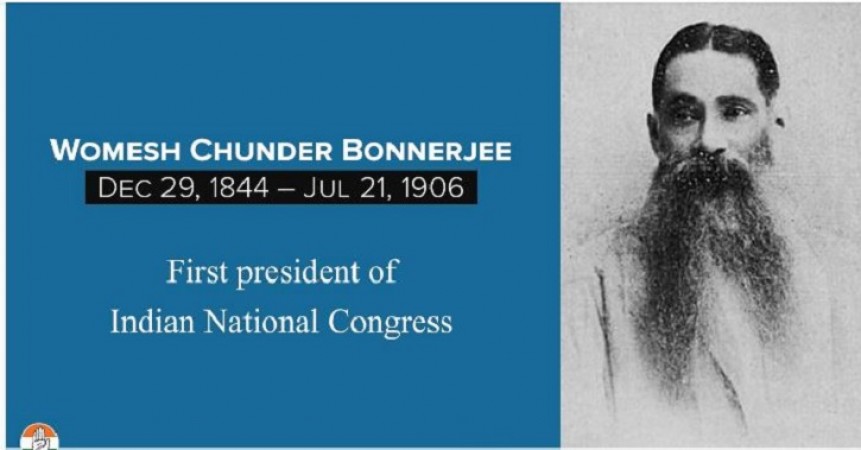
Womesh Chunder Bonnerjee, also known as Umesh Chandra Banerjee, played a pivotal role in India's struggle for independence. As a distinguished barrister, he became a prominent figure in the Indian National Congress, serving as its first president. Today, on the occasion of his death anniversary, we pay tribute to the visionary leader and acknowledge his significant contributions to the Indian independence movement.
Early Life and Education: Womesh Chunder Bonnerjee was born on 29 December 1844 in Calcutta, British India. He belonged to a prestigious Bengali family and received a quality education. Bonnerjee pursued his studies at St. Xavier's College and then enrolled at the University of London, where he obtained a degree in law.
Legal Career and Advocacy: After completing his education, Bonnerjee returned to India and embarked on a successful career as a barrister. His eloquence and commitment to justice earned him a reputation as one of the finest legal minds of his time. Bonnerjee tirelessly advocated for the rights of his fellow countrymen and became known for his involvement in public interest litigation cases.
Co-Founding the Indian National Congress: In 1885, Womesh Chunder Bonnerjee played a pivotal role in the formation of the Indian National Congress (INC) in Bombay. Alongside other influential leaders of the time, he established the organization with the aim of voicing the concerns and aspirations of the Indian people. Bonnerjee was elected as the first president of the Indian National Congress, a position he held with distinction.
Presidential Tenure and Contributions: During his presidency, Bonnerjee focused on uniting the diverse voices within the Indian National Congress and fostering a sense of nationalism among the Indian population. He advocated for political reforms, social equality, and the recognition of the rights of Indians. Under his leadership, the INC worked towards greater representation of Indians in the British administration and initiated discussions on self-governance.
Legacy and Impact: Womesh Chunder Bonnerjee's contributions to the Indian independence movement were significant. He laid the foundation for the Indian National Congress as a platform for political mobilization and the demand for self-rule. Bonnerjee's efforts paved the way for future leaders and activists to carry forward the struggle for independence.
Death and Remembering Bonnerjee: Womesh Chunder Bonnerjee passed away on 21 July 1906, leaving behind a rich legacy and a vision of a free and independent India. On his death anniversary, we commemorate his life, his unwavering commitment to the cause of Indian independence, and his tireless efforts to bring about social and political change.
Womesh Chunder Bonnerjee, as the first president of the Indian National Congress, played a pivotal role in shaping the course of India's independence movement. His legal acumen, advocacy for justice, and vision of a united India continue to inspire generations. On his death anniversary, we honor his memory and reaffirm our commitment to the principles he fought for – a democratic, inclusive, and progressive India.